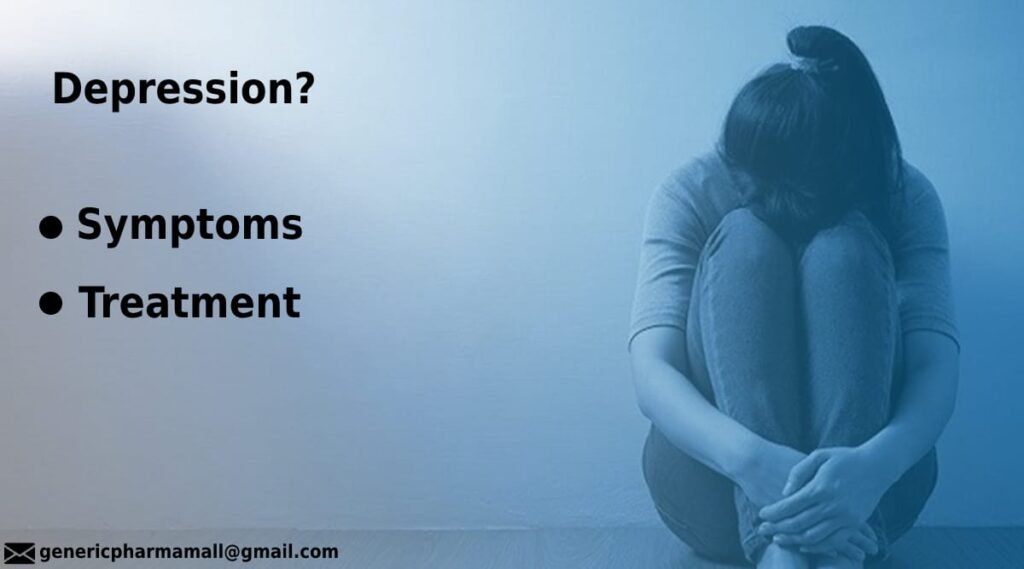No products in the cart.
Clarivo, HaruTheme, Personal Care
What is depression?
Depression
Depression is part of everyday life, but if feelings like hopelessness and despair calm down and continue, chances are you will become depressed. Depression alters your thinking, the way you think and act in your daily life, as well as simple sadness, which is the answer to life’s problems and frustrations. It can affect your ability to work, study, eat, sleep, and enjoy life. Just trying to get through the day can be exhausting.
Especially men, can feel angry and anxious. How to deal with depression and treat it. Leaving it unattended can become a serious illness, but it’s important to remember that helplessness and hopelessness are symptoms of depressions, not the reality of your situation.
No matter how desperate you feel, you can get better. Understanding the types of symptoms and different depression can help you feel better and take your problems.
Symptoms
Rash behavior
Engage in escapes such as substance abuse, gambling addiction, reckless driving, and dangerous sports.
Angry or irritable
It is also creepy, disturbing or cruel. You have a low tolerance level, a warm temperament, everything and everyone is in tension.
Feelings of helplessness and hopelessness
Gloomy Look: There is nothing you can do to improve the situation except to improve.
Loss of interest in daily activities
You no longer have to worry about your previous hobbies, entertainment, social activities, or sex. You have lost the ability to feel joy and pleasure.
Changes in appetite or weight
Significant weight loss or weight gain: change at least 5% of body weight per month.
Sleep changes
Is there insomnia, especially early in the morning? I overslept.
Loss of energy
You feel tired, sleepy and exhausted. Your body can feel heavy and it takes time to finish, even if something is tired.
I hate for themselves
Feelings of worthlessness or guilt.
You criticize yourself harshly for perceived mistakes or errors.
Problems with concentration
I have trouble making targeted decisions or remembering things.
Pain and pain of unknown cause
Increased physical ailments such as headache, back pain, muscle aches and abdominal pain.
Depression by the Gender
Depression can vary based on age and gender, and many symptoms differ in men and women, teenagers and the elderly.
Depressions by men
Depressed people are less likely to admit self-contempt and despair. Instead, they tend to complain of fatigue, irritability, sleep disturbances, and a loss of interest in work or hobbies. They are also more likely to exhibit symptoms such as anger, aggression, reckless behavior, and substance abuse.
Depressions by women
Women are more likely to experience symptoms of depression such as guilt, excessive sleep, appetite, and weight gain. Depression in women is also affected by hormonal factors such as menstruation, pregnancy, and menopause. In fact, postpartum depression affects one in seven women who suffer from postpartum depression.
Adolescent depression
It is not irritability, anger, excitement or sadness, but depression is often the most obvious symptom in a teenager. He also complains of physical aches such as headaches and abdominal pains.
Depressions in the elderly
They usually complain of physical signs and symptoms rather than the emotional signs and symptoms of older depression. These include fatigue, unexplained pain and pain, and memory problems. They may also ignore their appearance and stop taking medications that are important to their health.
Treatment
Therapy
Treating depression effectively often requires consulting a therapist who can treat depression from different angles and provide the tools to motivate you to take action.
Therapy Treatment can also provide techniques and knowledge to help prevent a recurrence of depression.
If you are feeling suicidal or violent, you may need medication. But while some people help relieve symptoms of depression, this isn’t a cure, usually not a long-term solution. There are side effects and other drawbacks too, so knowing all the facts is important for making informed decisions.

